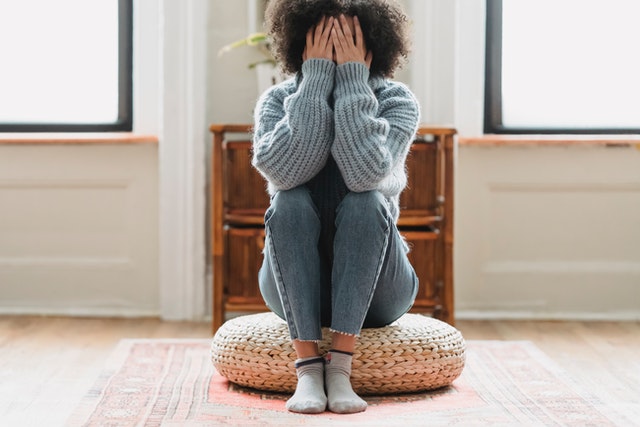What Is The Connection Between A Woman’s Hormones and Anxiety

It might not be surprising to hear, but a woman’s hormones and anxiety are closely connected. Hormones act as an essential regulator of many different bodily functions. They also have a considerable influence on emotional well-being. In this blog post, we will look at the connection between a woman’s hormones and anxiety and how it influences mental health.
Understanding the Hormonal Landscape
To comprehend the connection between hormones and anxiety, we must first navigate the hormonal landscape within a woman’s body. Estrogen and progesterone, the two primary female sex hormones, dance in a delicate choreography throughout the menstrual cycle. Estrogen levels rise during the follicular phase, leading to ovulation, while progesterone takes center stage during the luteal phase following ovulation.
Estrogen’s Influence on Mood
During the follicular phase, elevated estrogen levels contribute to a surge in serotonin and endorphin production. Serotonin, often referred to as the “feel-good” neurotransmitter, plays a crucial role in mood regulation. This hormonal boost is associated with improved mood, increased energy, and enhanced emotional well-being.
Conversely, as estrogen levels drop in the luteal phase, some women may experience a dip in serotonin levels. This shift can contribute to mood swings, irritability, and heightened emotional sensitivity, potentially paving the way for anxiety symptoms.
The Progesterone Paradox
While estrogen tends to garner more attention, progesterone also plays a significant and intricate role in the hormonal symphony. Progesterone, acknowledged for its calming effects on the nervous system, acts as a natural sedative.
However, in some women, especially those with heightened sensitivity to hormonal fluctuations, the surge and subsequent decline of progesterone during the menstrual cycle can trigger anxiety symptoms, headaches, and trouble sleeping, which underscores the complex interplay of hormones in mental well-being. Exploring these fluctuations offers valuable insights into the multifaceted nature of women’s health.
Menstrual Cycle-Related Anxiety
Premenstrual Syndrome (PMS) and its more severe form, Premenstrual Dysphoric Disorder (PMDD), exemplify the interplay between hormones and anxiety. Women experiencing these conditions often grapple with heightened anxiety, mood swings, and irritability in the days leading up to menstruation. Understanding these cyclical patterns can help women and healthcare professionals tailor interventions to mitigate the impact of hormonal fluctuations on mental health.
Hormonal Changes Across the Lifespan
The hormonal rollercoaster doesn’t stop with menstruation. Pregnancy, postpartum, perimenopause, and menopause usher in their own set of hormonal shifts, each potentially influencing a woman’s susceptibility to anxiety.
Pregnancy, for instance, brings about a surge in hormones like human chorionic gonadotropin (hCG) and progesterone. While these hormones are crucial for a healthy pregnancy, they can also contribute to heightened emotional sensitivity and anxiety in some women.
Postpartum anxiety, distinct from postpartum depression, is characterized by excessive worry and fear. Fluctuations in estrogen and progesterone, compounded by sleep deprivation and the challenges of new motherhood, can contribute to the onset of anxiety symptoms.
Perimenopause and menopause mark the end of the reproductive years and entail significant hormonal changes. Estrogen levels plummet, potentially leading to a higher susceptibility to anxiety and mood disturbances. Hormone replacement therapy (HRT) is often considered to alleviate these symptoms, but it comes with its own set of considerations and risks.
—
There are many causes of anxiety in women, and hormones can definitely play a large role in that. However, it’s important to remember that anxiety is a multifaceted condition that is influenced by many factors, including genetics, environmental, and psychological factors. If you are struggling with anxiety, know that you aren’t alone. Don’t hesitate to reach out to learn more about therapy for women and how it can help support you.


